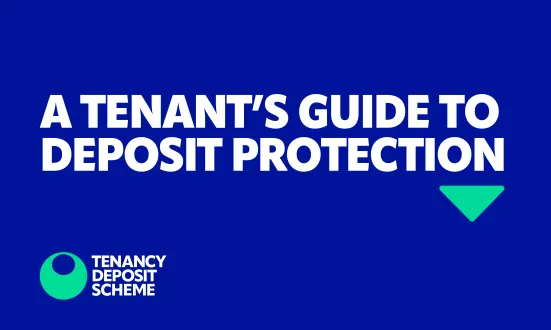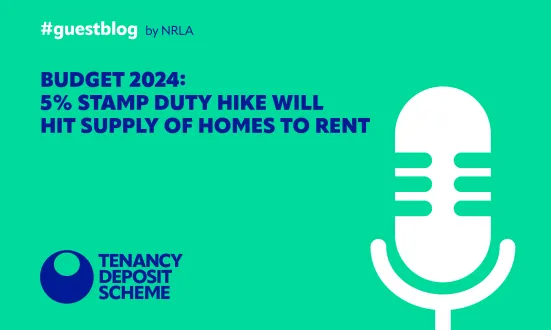In this week’s #ExpertView, Ben Beadle, Chief Executive of the National Residential Landlords Association (NRLA), calls on Government to help landlords and tenants recover from the emergency restrictions imposed during Covid-19 and looks ahead to rental reform.
The country is gradually opening up. After well over 12 months, the emergency restrictions that impacted landlords as part of the Government’s move to protect tenants are starting to ease.
These included increased notice periods on repossessions, prioritisation of cases and a ban on enforcement action in all but the most serious of cases.
The easing of restrictions in England started on the 31st of May with bailiffs able to arrange appointments from 1 June and will begin in Wales after 30 June. The updates are wide ranging and reflect the roadmap that the NRLA had suggested as a measured and reasonable way to return to the norm without overstretching the courts. These changes will be staggered, with the first already in place from 1 June and all notice periods are set to return to their pre-Covid levels from 1 October this year. In Wales, the Welsh Government have yet to announce the transition back to pre-Covid measures.
At the NRLA, we have been working tirelessly behind the scenes to shape the way we transition out of these emergency measures in England and Wales to ensure the process is as seamless as possible and works for landlords and tenants alike.
Arrears still need to be tackled
Whilst we welcome the beginning of recovery for the sector, rent debt as a result of the pandemic must also be tackled.
NRLA research shows landlords have been hit hard by the pandemic. 60% have lost money, with data showing 840,000 tenants have built arrears since last March.
To help, we have joined forces with partners from across the sector to call for a Government-backed interest-free loan scheme for tenants to help them pay off Covid-related arrears.
As the private rented sector moves out of lockdown measures, urgent assistance is needed and the NRLA is calling on the Chancellor to step in and provide financial support to pay off rent arrears built as a result of the pandemic. For more information on our calls for financial support for the sector click here.
In Wales we are calling on the Minister to ensure access to the Tenancy Saver Loan scheme is widened to provide financial support for landlords and tenants by addressing arrears.
Looking ahead to rental reform
Whilst we continue to focus on the issues impacting landlords as a result of the pandemic, we must also look forward ensuring the sector not only recovers but thrives in the future.
Last month’s Queen’s Speech announced a Government white paper will be published on the reform package in the autumn outlining proposals as well as confirming the Government’s response to its 2019 consultation on the removal of Section 21 will be published.
The package is expected to require all private landlords to belong to a redress scheme, consider further reforms of the private renter sector enforcement system and explore improvements to the possession process in the courts. This would amount to some of the biggest changes in the private rented sector for over 30 years.
The NRLA have urged Government to use the time to ensure that the reforms are fair and workable for both landlords and tenants. It will be a busy time campaigning to shape the planned reforms as its vital we strike the right balance for the private rented sector. You can read the NRLA Renters’ Reform Bill proposals which launched in 2020 here.
As well as the Renters’ Reform Bill, in Wales the Renting Homes Act is due for implementation next spring, six years after it passed the Senedd, marking the most significant overhaul of the private rented sector for a generation.
So emergency restrictions may soon be a thing of the past but our momentum continues to drive positive change in the sector.
If you’ve been impacted by rent arrears, TDS Resolution can help. It’s a free resolution service from the Dispute Service in association with the NRLA. The mediation service aims to facilitate a satisfactory resolution between landlords and tenants without the need for further action to allow tenancies to be sustained. Learn more at: TDS Resolution.
NRLA members receive the leading deposit protection rates with Tenancy Deposit Scheme (TDS)!If you are an existing NRLA member, protect your tenant’s deposit with TDS Insured, via your NRLA member dashboard here. Or alternatively, you can also protect your tenant’s deposit today for FREE with TDS Custodial, via your NRLA member dashboard here.

About the Author

Ben Beadle is Chief Executive of the National Residential Landlords Association (NRLA), the UK’s largest trade body for landlords. A landlord himself since the age of 20, Ben started out as property manager before working his way up through the ranks at Tenancy Deposit Scheme (TDS). He was then Operations Director at property management business Touchstone before overseeing the merger of the National Landlords Association (NLA) and Residential Landlords Association (RLA) to create the new trade body earlier this year. His key aims as head of the organisation are to strengthen the voice of landlords in Westminster and Cardiff, to improve the reputation of landlords in the media and to support members through information, training and accreditation.
About Tenancy Deposit Scheme (TDS)
Tenancy Deposit Scheme (TDS) is the only Government-approved scheme for the protection of tenancy deposits; TDS offers both Insured and Custodial protection and provides fair adjudication for disputes that arise over the tenancy deposits that we protect.
We provide invaluable training in tenancy deposit protection and disputes for agents and landlords through the TDS Academy Online. TDS, in partnership with the awarding body Propertymark Qualifications provide a Level 3 Award in Residential Tenancy Deposit Protection and Management.
These views are those of the author alone and do not necessarily reflect the view of TDS, its officers and employees.
TDS can only comment on the process for our scheme, other deposit protection schemes may have a different process/require different steps. Content is correct at the time of writing.
Other news stories


